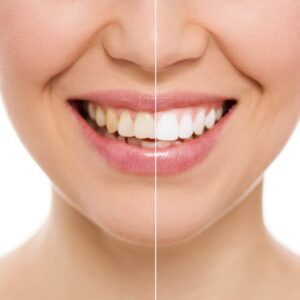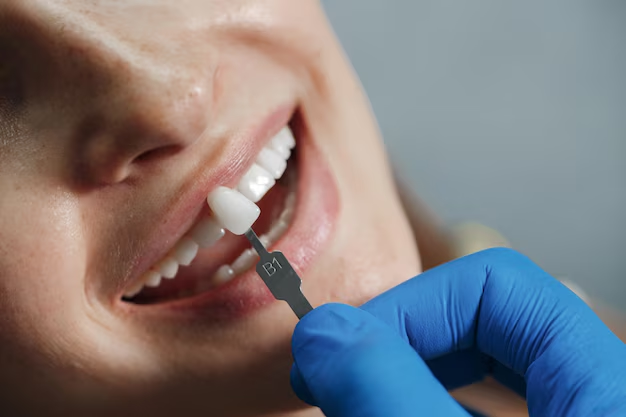
Cavity pain is one of the most common dental complaints, and if you’ve ever experienced it, you know how uncomfortable it can be. Cavities, also known as dental caries or tooth decay, occur when harmful bacteria in your mouth produce acids that break down the enamel on your teeth. If left untreated, cavities can cause pain, infection, and even tooth loss. In this article, we’ll cover everything you need to know about cavity pain, including its causes, symptoms, treatments, and how to prevent it.
At Fab Dental in Hayward, we believe that understanding dental issues is the first step in maintaining optimal oral health. If you’re experiencing tooth pain or suspect you might have a cavity, it’s important to visit a trusted dentist in Hayward as soon as possible to receive proper care and treatment.
What Causes Cavity Pain?
Cavity pain occurs when tooth decay progresses deep enough into the tooth to reach the dentin (the layer beneath the enamel) or even the pulp, which contains nerves and blood vessels. The pain can be triggered by hot, cold, or sweet foods, pressure from chewing, or even spontaneous throbbing. Here are the stages of cavity development and how they relate to pain:
- Initial Enamel Damage: At this stage, you typically won’t experience pain, as the enamel has no nerve endings. However, cavities may start to form on the surface of the tooth.
- Dentin Exposure: As the cavity grows and damages the enamel, it reaches the dentin, which is more sensitive. You might begin to experience pain when exposed to temperature changes, sweet foods, or when chewing.
- Pulp Infection: If the decay reaches the pulp, it can cause intense pain, including sensitivity to temperature and pressure. This is also when an infection or abscess may develop, causing swelling and severe pain.

“Cavity pain is your body’s way of signaling that something is wrong. Don’t ignore it—seek dental treatment in Hayward to prevent further damage.”
— Dr. Alag, DDS, FAGD, Fab Dental Hayward.
Common Symptoms of Cavity Pain
Understanding the signs of a cavity can help you identify whether you need to visit a dentist for dental treatment in Hayward. Common symptoms of cavity pain include:
- Tooth sensitivity: Pain or discomfort when eating hot, cold, sweet, or acidic foods.
- Spontaneous pain: Throbbing or sharp pain that occurs without any obvious trigger.
- Pain when chewing: Sensitivity or sharp pain while chewing or biting down on food.
- Visible holes or pits: Cavities may cause visible holes or dark spots on the tooth’s surface.
- Bad breath or an unpleasant taste: Persistent bad breath or a bad taste in your mouth may indicate decay or infection.
How to Manage Cavity Pain Until You See a Dentist
If you’re experiencing mild cavity pain and are unable to visit your dentist immediately, there are a few ways to manage the discomfort until you can receive professional care:
- Over-the-counter pain relievers: Non-prescription medications like ibuprofen or acetaminophen can help relieve pain and reduce inflammation.
- Avoiding trigger foods: Stay away from hot, cold, or sugary foods and drinks that may worsen the pain.
- Use a desensitizing toothpaste: Special toothpaste for sensitive teeth can help reduce pain caused by exposure to temperature extremes.
- Saltwater rinse: A warm saltwater rinse can help soothe sore gums and reduce inflammation.
How Dentists Treat Cavity Pain
The best way to relieve cavity pain is through professional dental treatment. The specific treatment you need will depend on the severity of the cavity. Here are common treatments your dentist in Hayward might recommend:
- Fillings: For minor cavities, a filling is the most common treatment. Your dentist will remove the decayed part of the tooth and fill the cavity with materials like composite resin, amalgam, or gold.
- Root Canals: If the decay has reached the pulp, a root canal may be necessary to remove infected tissue and seal the tooth. After a root canal, your dentist will typically place a crown to protect the tooth from further damage.
- Crowns: If the cavity has caused significant damage to the tooth, a crown may be used to restore the tooth’s function and appearance.
- Tooth Extraction: In severe cases where the tooth is beyond saving, an extraction may be necessary to remove the damaged tooth and prevent further infection.
“Addressing cavities early on can save your tooth and prevent the need for more invasive treatments like root canals or extractions.”
— Dr. Alag, DDS, FAGD, Fab Dental Hayward.
Preventing Cavity Pain
The best way to prevent cavity pain is to take steps to avoid tooth decay altogether. Here are some effective ways to keep your teeth healthy and cavity-free:
- Brush and floss regularly: Brush your teeth at least twice a day with fluoride toothpaste and floss daily to remove plaque and food particles between your teeth.
- Limit sugary and acidic foods: Sugary and acidic foods contribute to tooth decay by providing fuel for harmful bacteria. Avoid frequent snacking on sugary treats or drinking sugary beverages.
- Visit your dentist regularly: Regular checkups and cleanings are essential for detecting cavities early before they cause pain or require extensive treatment.
- Use fluoride treatments: Fluoride strengthens tooth enamel and helps prevent decay. Your dentist may recommend fluoride treatments if you’re at higher risk for cavities.
- Consider dental sealants: Dental sealants are protective coatings applied to the chewing surfaces of your molars, where cavities are most likely to form.
FAQs About Cavity Pain
What does cavity pain feel like?
Cavity pain can range from mild sensitivity to sharp, throbbing pain. It may occur when you eat hot, cold, sweet, or acidic foods, or it can occur spontaneously. As the cavity progresses, the pain may become more constant and intense.
Can a cavity cause severe pain?
Yes, if the cavity reaches the deeper layers of the tooth, such as the dentin or pulp, it can cause severe pain. This type of pain is usually sharp, throbbing, and may worsen over time.
Is it safe to ignore cavity pain?
Ignoring cavity pain can lead to further damage, infection, and more severe pain. If you’re experiencing cavity pain, it’s essential to schedule a visit with your dentist in Hayward as soon as possible to prevent complications.
How long can cavity pain last before it gets worse?
Cavity pain can worsen over time if not treated. Initially, the pain may be intermittent, but as the decay spreads, it can become constant and intense. Delaying treatment can lead to infections or the need for more invasive procedures like root canals or extractions.
Can cavity pain be prevented?
While some people may be more prone to cavities due to genetics, good oral hygiene practices such as regular brushing, flossing, and professional dental checkups can significantly reduce the risk of cavity pain.
How does a dentist treat a cavity once it has caused pain?
Your dentist will assess the extent of the decay and may recommend treatments such as fillings, root canals, or crowns to restore the tooth and eliminate the pain. In severe cases, tooth extraction may be necessary.
Conclusion
Cavity pain can be an early warning sign that something is wrong with your teeth. Whether you’re experiencing mild discomfort or severe throbbing pain, it’s essential to see a dentist in Hayward as soon as possible to prevent further damage. At Fab Dental, we provide comprehensive dental treatments to address cavities and restore your smile. Early intervention is key to preserving your teeth and preventing more complex procedures down the line.
If you’re dealing with cavity pain or suspect you have a cavity, don’t wait—contact us today to schedule an appointment and get the relief you need!







